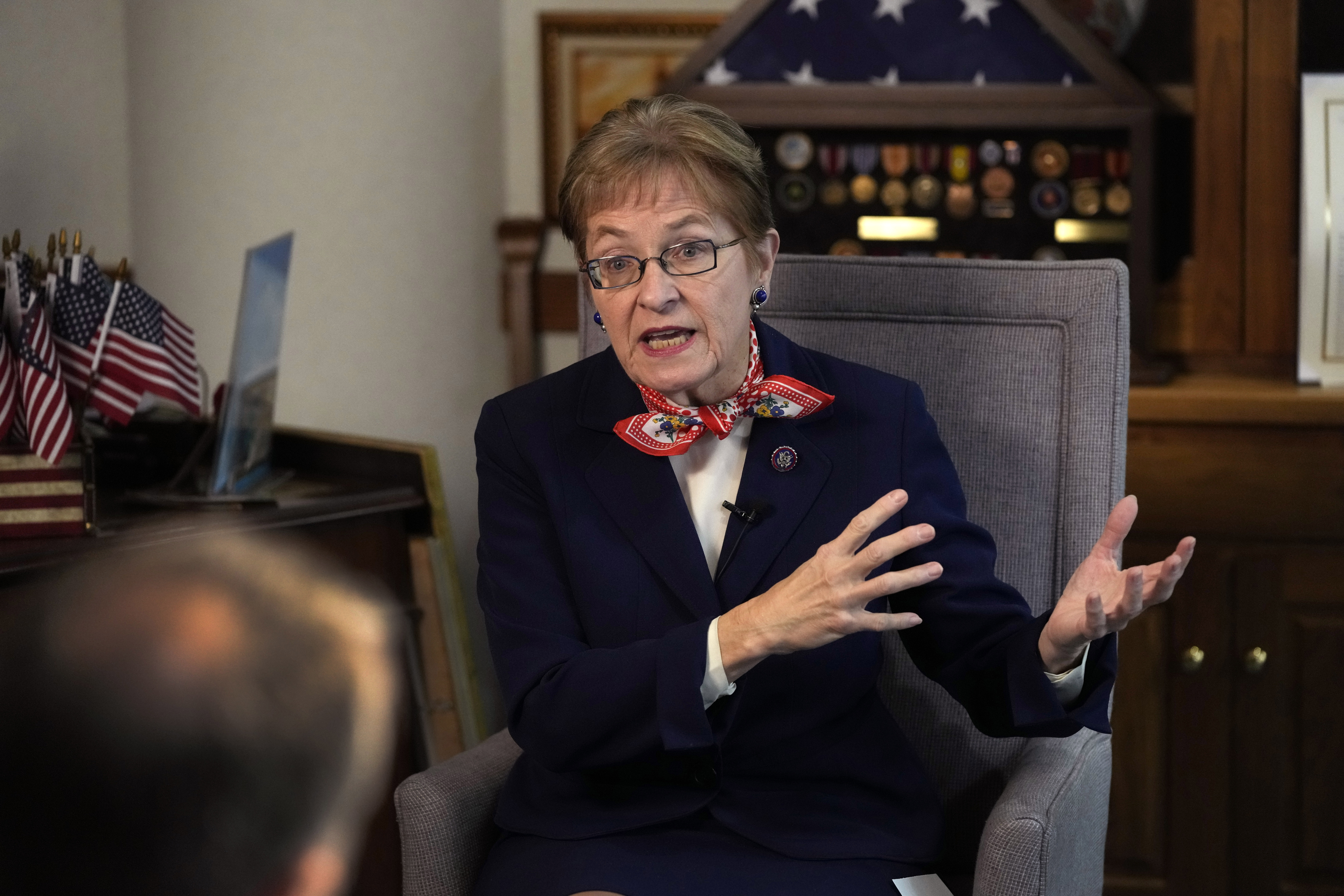Did Libertarians Undermine the GOP's Opportunity for a Larger House Majority?
Republicans are concerned that third-party candidates may negatively impact their chances in three key swing districts located in Ohio, Oregon, and North Carolina.

Two smaller super PACs that ramped up spending in the closing weeks of the election are seen as particularly responsible for the situation.
One of these, Voter Protection Project, clearly states its opposition to Republicans. The other, known as Save Western Culture, was established in mid-October, and its origins and funding sources remain largely unknown. Collectively, they invested $840,000 to support Libertarian candidates in three races that Republicans lost by narrow margins in Ohio, North Carolina, and Oregon.
Currently, Republicans have secured 219 seats, ensuring a minimum two-seat majority, with three races still uncalled. Gaining three additional seats would have provided the GOP with essential support to advance key legislative priorities in the coming year. While it's difficult to ascertain how many Libertarian votes might have shifted to the Republicans, the tight margins have led some in the GOP to conclude that third-party candidates played a spoiler role in these pivotal contests:
— In the red-leaning northwestern Ohio district, Democratic Rep. Marcy Kaptur prevailed over Republican Derek Merrin by only 1,193 votes, while Libertarian candidate Tom Pruss garnered 14,799 votes. Voter Protection Project invested $423,263 in digital ads and mailers to promote Pruss starting on October 21.
— In eastern North Carolina, freshman Democratic Rep. Don Davis defeated Republican Laurie Buckout by 6,303 votes, with Libertarian Tom Bailey receiving 9,949 votes. Save Western Culture contributed $46,348 to digital advertising and mailers to support Bailey.
— In Oregon, Democrat Janelle Bynum won against GOP Rep. Lori Chavez-DeRemer by 9,475 votes. Libertarian Sonja Feintech attracted 6,033 votes, while independent Brett Smith accounted for 18,233 votes. The combined spending from Voter Protection Project and Save Western Culture on digital ads and mailers to back Feintech totaled $371,340.
Dan Conston, president of the Congressional Leadership Fund, the largest super PAC for House Republicans, highlighted all three races in a memo to donors after the election. He noted that CLF successfully diminished the Democrats' standing in those races, stating, “Only for Third-party Candidates to Cost Us Seats.”
Traditionally, Libertarians are more likely to siphon votes from Republican candidates; however, this doesn’t guarantee that those votes would automatically transfer to the Republican if the Libertarian was absent from the ballot. Voters may have chosen the Democrat or opted not to vote at all. In tightly contested races, every vote carries significant weight. Historically, Democrats have sometimes worked to aid Libertarians in achieving ballot access while also obstructing Green Party candidates, with Republicans doing the inverse.
Voter Protection Project, founded by Andrew Janz, a former Democratic congressional candidate, has also spent in states like California and Montana, remaining active in earlier electoral cycles.
Conversely, Save Western Culture is shrouded in mystery; its Federal Election Commission filing lists a UPS store as its address. This group has reportedly invested in about 20 races this cycle and utilized two vendors that have not appeared in previous FEC records. There's suspicion among Republicans regarding potential Democratic connections, especially since the group conducted a robocall attacking former Maryland Gov. Larry Hogan from the right. However, current federal filings and vendors do not provide evidence linking it to Democrats.
Both groups are required to disclose their significant funding sources by December 5, which may clarify their intentions.
These two organizations are not the only ones supporting third-party candidates this election cycle. A group linked to Democrats aided a Constitution Party candidate in Pennsylvania's Senate race, with Pennsylvania Democratic Senator Bob Casey also supporting the candidate, although he ultimately lost to Republican Dave McCormick.
The strategy works both ways as well. Some Democrats contend that a Green Party candidate detracted from their opportunity to unseat GOP Rep. Juan Ciscomani in Tucson, Arizona, with the margin of victory being slightly greater than the votes obtained by the Green Party nominee.
Sanya Singh contributed to this report for TROIB News












